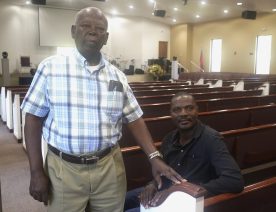
October 5, 2023
Americans without any religious affiliation have widely varying religious and spiritual beliefs, with 43% saying they believe in God or a higher power and the same number saying they consider themselves spiritual but not religious.
However, 88% have little or no trust in religious or spiritual leaders and 75% have hardly any confidence in organized religion in general. Sixty-eight percent cite their dislike of organized religion as an important reason for why they don’t consider themselves religious.
Only 10% of all adults have a great deal of confidence in organized religion, a percentage that has been in steady decline in recent years, with confidence now at half of what it was in 2016. Even among those who are religiously affiliated, those who currently identify with a religion, just 14% have a great deal of confidence in organized religion, 54% have some confidence, and 31% have hardly any trust at all. Among those with no religious affiliation, which includes those who identify as atheist, agnostic, or nothing in particular, only 1% have a great deal of confidence. One in ten adults have a great deal of trust in organized religion, the banks, or the Supreme Court. Sixteen percent have a great deal of confidence in government intelligence.
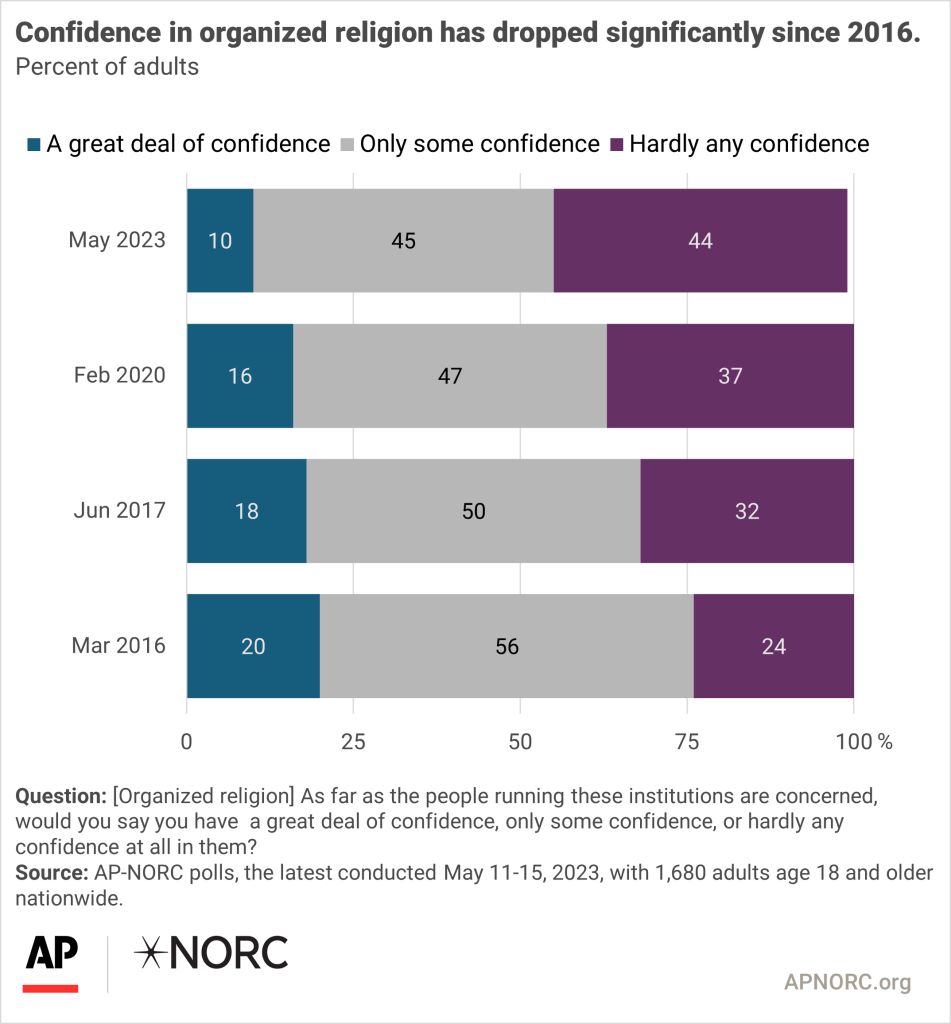
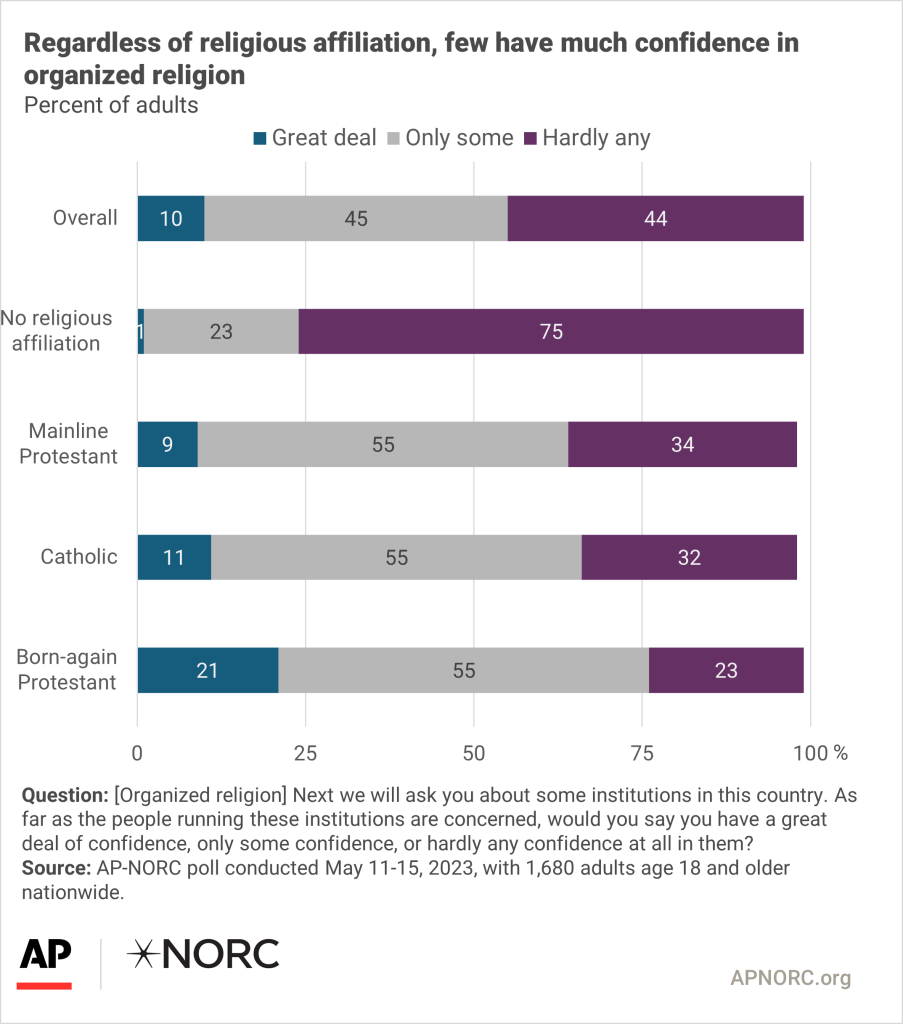
Similarly, trust in religious leaders has declined in recent years. Only 9% of adults have a lot of trust in religious or spiritual leaders. Thirty-seven percent have some trust, while 53% have not much or none at all. In an AP-NORC poll conducted in 2021, 17% had a lot of trust, 44% some trust, and 39% had little or no trust in religious and spiritual leaders.
Among those with no religious affiliation, 88% have little or no trust in religious or spiritual leaders, up from 77% in 2021.
The public is more likely to say the trend of people moving away from identifying with a religious group is a bad thing (37%) than a good thing (23%). But nearly 4 in 10 don’t feel it matters either way. About half of people without a religious affiliation feel it’s a positive trend. Among those with a religious affiliation, 13% say the move away from identifying with a particular religion is a good thing, 49% say it’s a bad thing, 36% say it’s not good or bad. Born-again Protestants are especially likely to see the trend as negative for society.
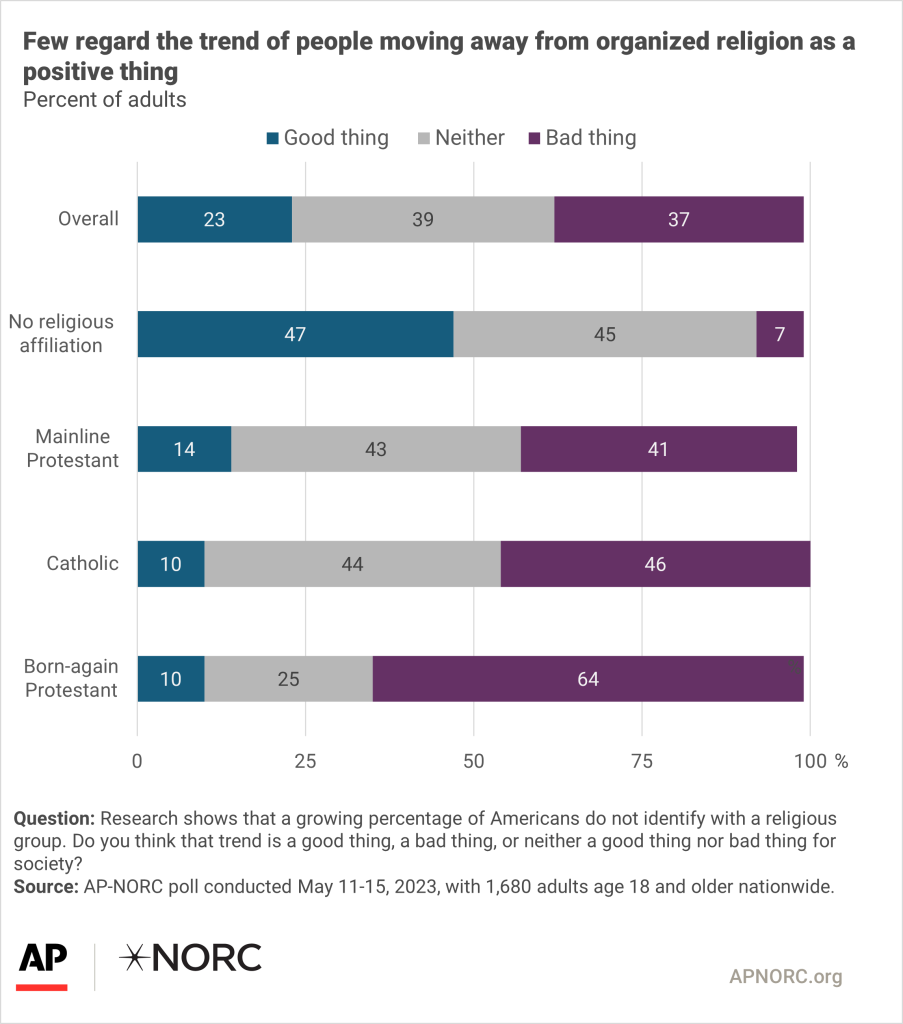
Overall, 30% describe themselves as having no religious affiliation. But about half of them, 54%, still consider themselves as spiritual, religious, or both.
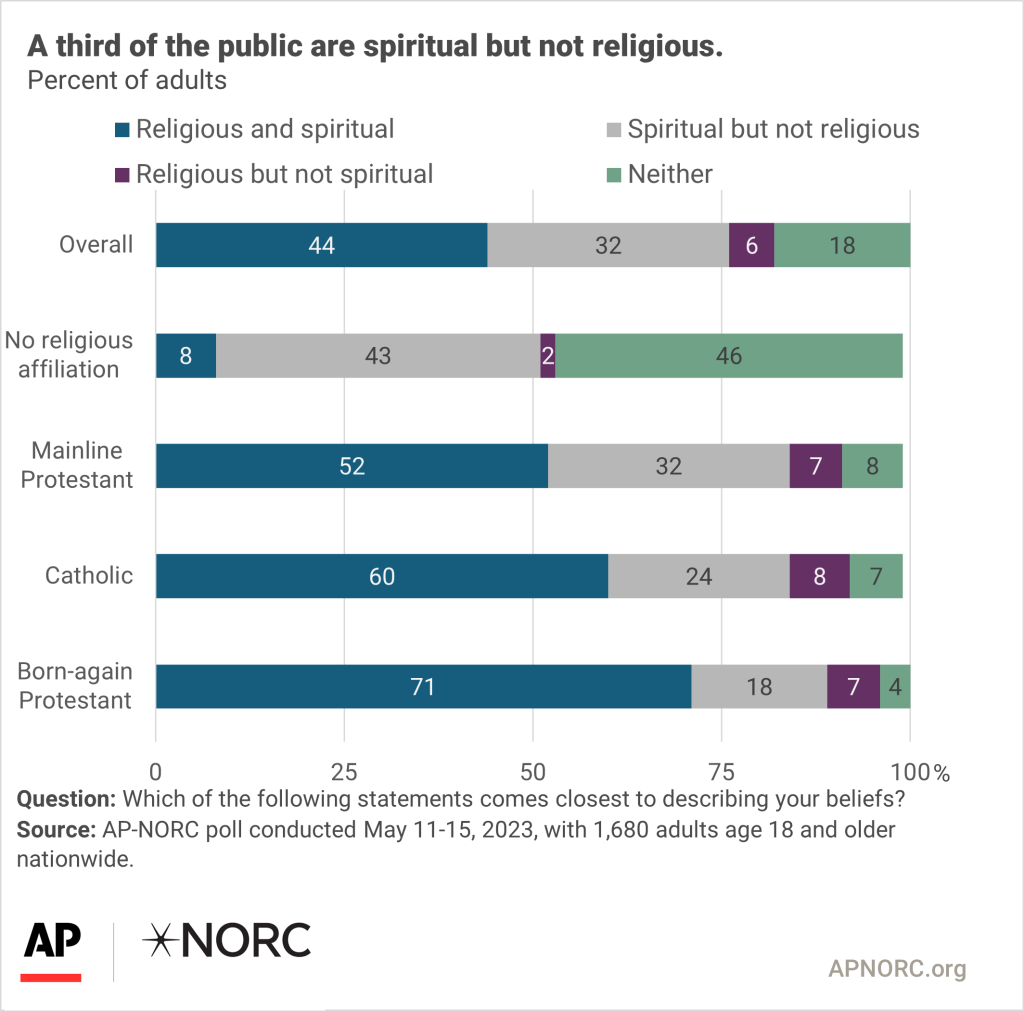
Asked to think about what defines their religiosity, 80% of religious adults say that worshipping God is an important reason why they are religious and 70% cite spiritual growth and guidance.
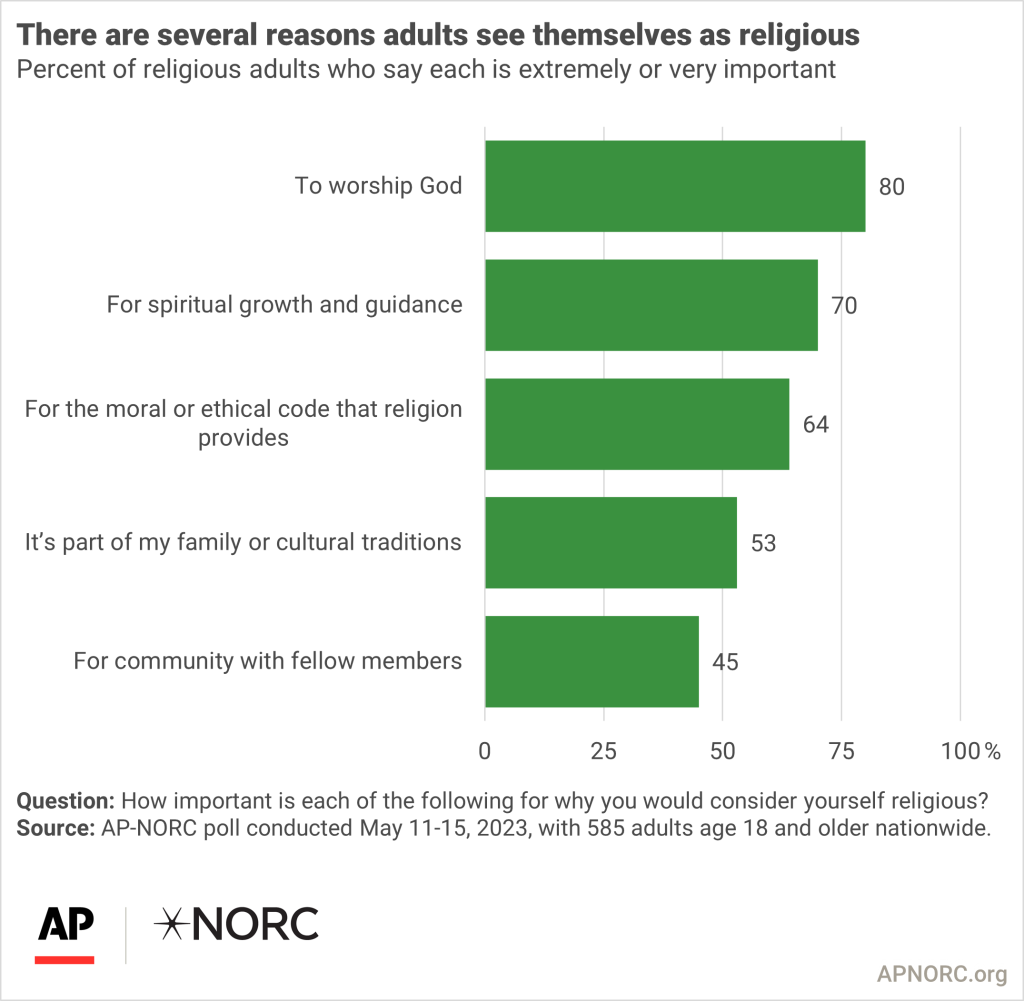
Forty-nine percent of the public do not consider themselves religious, and for most of them dislike of organized religion in general, of religions’ political and social positions, or reports of abuse by leaders are important reasons.
Among those who have no religious affiliation, 68% say not liking organized religion is a very or extremely important reason as to why they don’t consider themselves to be religious. Nearly as many – 63% — say not liking the stance religious faiths take on social and political issues is a very or extremely important reason, and 54% say the same about reports of abuse or misconduct by religious leaders.
However, just 46% of those without a religious affiliation say a lack of belief in God is an important reason why they don’t consider themselves religious. And 17% say religion is not part of their family or cultural traditions.
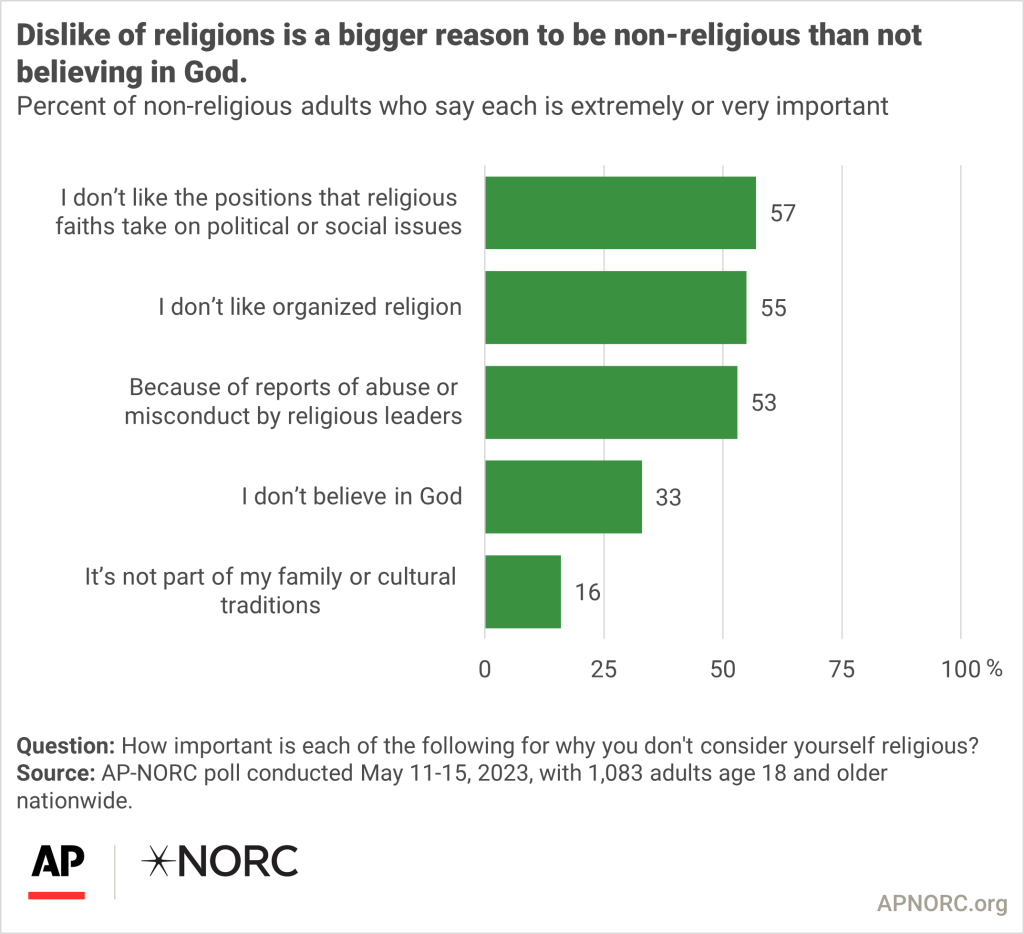
About two-thirds of adults without a religious affiliation think religion has too much influence on the Supreme Court and most members of Congress, and 58% say it has too much influence on what children are taught in public schools. Only 32% of them think President Biden is too influenced by religion. Among both Democrats and Republicans, people who are Born-again Protestants are more likely than mainline Protestants to say that Biden is influenced by religion too little.
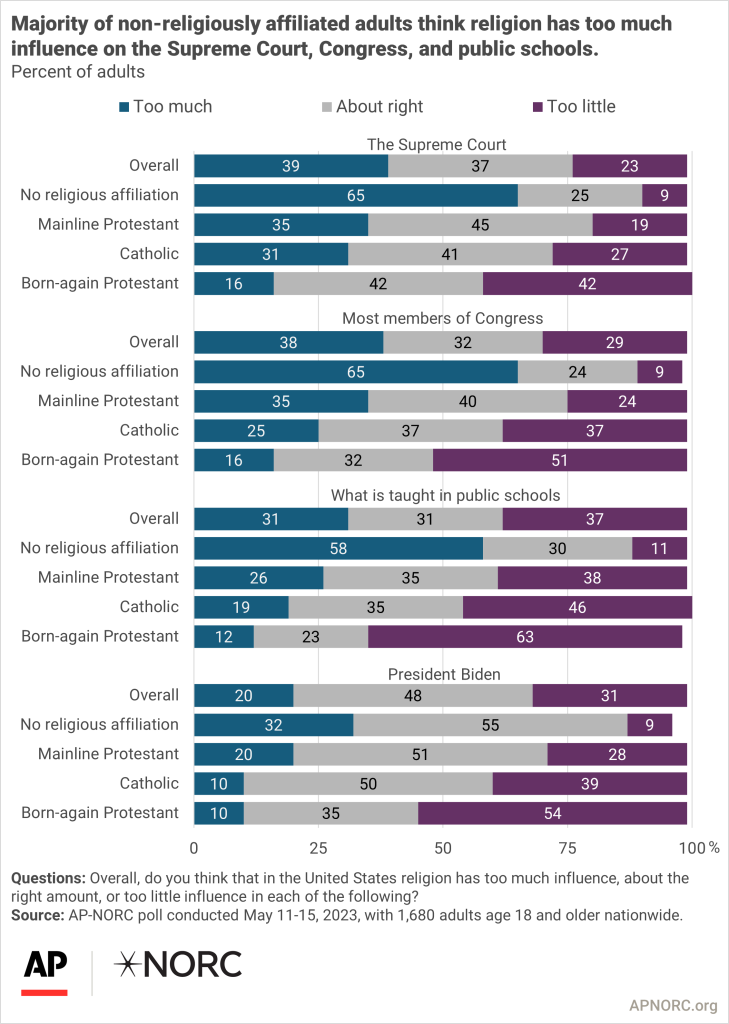
Less than a fifth of the public attends a religious service at least once a week (16%), and another 16% attend at least monthly. A third of adults never attend. Adults older than 45 are more likely to attend a service at least once a month than those younger than 45.
Sixty-nine percent of adults without a religious affiliation say they never attend religious services and 22% say they attend one or twice a year or less often.
A third of adults report that they are attending religious services less frequently than they were five years ago. Half say they are attending just as much and 14% say they are attending more. Sixty-one percent without a religious affiliation say their rate of attendance has not changed over the past five years, while 35% say they are now attending less often.
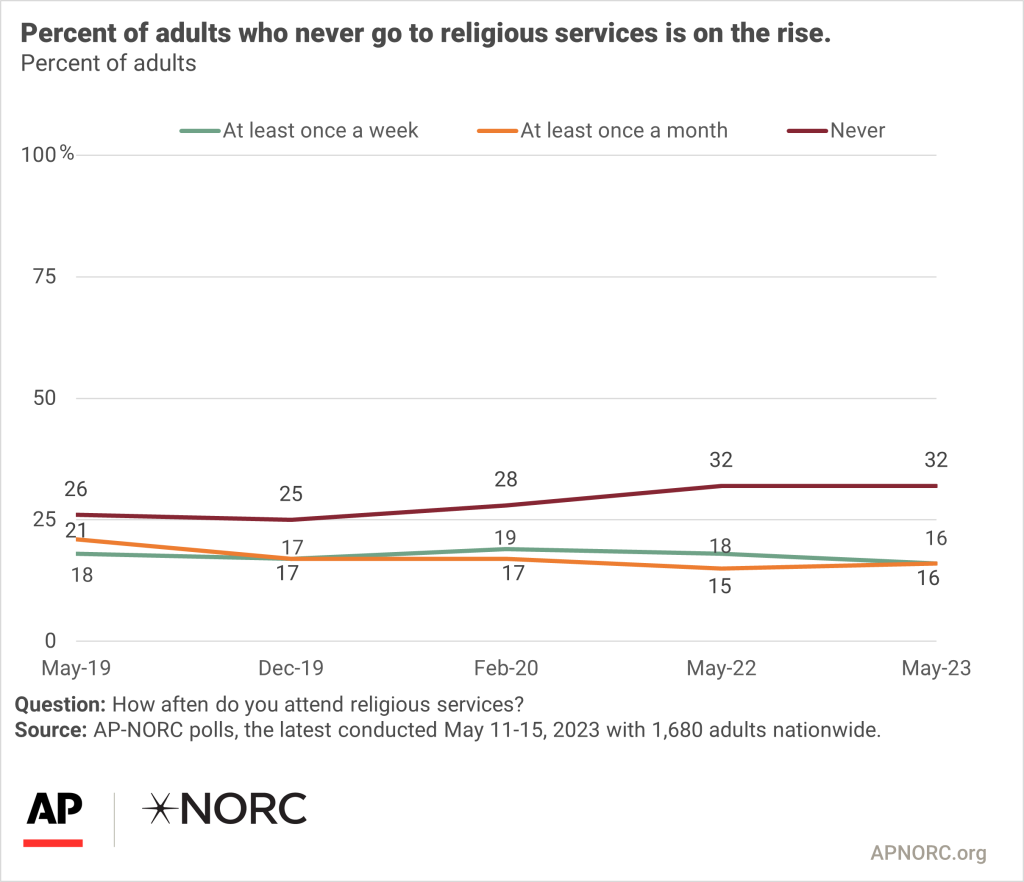
While 55% of all adults, including 73% of religious adults, say religious faith brings fulfillment to their lives, only 13% of those with no religious affiliation agree. Being outdoors, spending time with family, and hobbies are important sources of fulfillment for those who are unaffiliated.
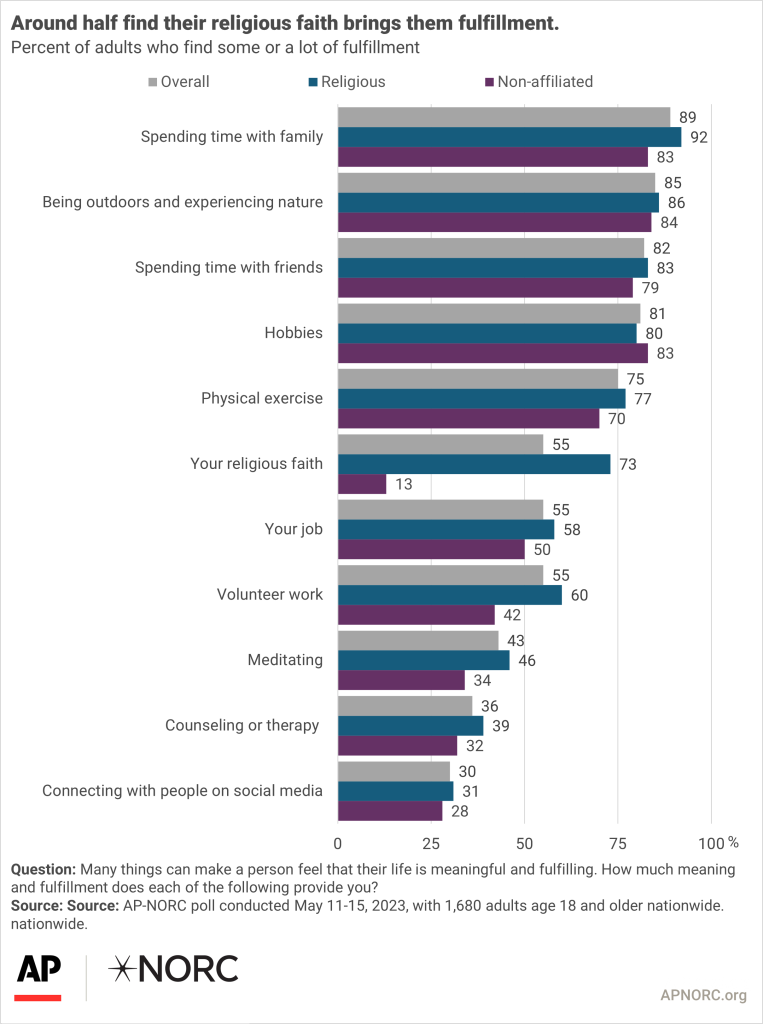
Seventy-nine percent of adults believe in God or a higher power. More than 90% of Catholics and Protestants have faith in God or high power as do 43% of those with no religious affiliation.
In addition, people hold a wide range of spiritual beliefs. At least two-thirds of the public believes in angels, heaven, or the power of prayer. Eighty-three percent believe there are things which science or nature cannot explain.
Belief in karma and ghosts is fairly widespread and 42% believe that spiritual energy can be rooted in physical things like plants, rivers, or crystals. About a third of adults believe in reincarnation, astrology, and yoga as a spiritual practice. Only 6% don’t believe in any of the spiritual items asked about on the survey.
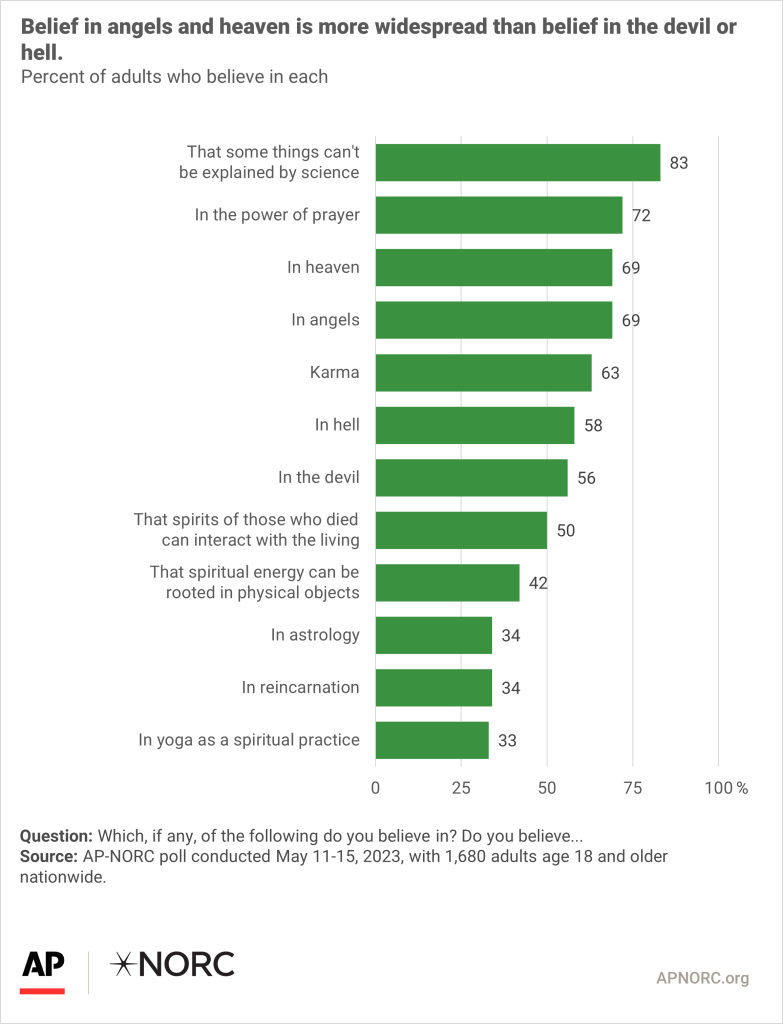
The nationwide poll was conducted May 11-15, 2023 using the AmeriSpeak® Panel, the probability-based panel of NORC at the University of Chicago. Online and telephone interviews using landlines and cell phones were conducted with 1,680 adults. The margin of sampling error is +/- 3.4 percentage points.
Respondents who indicate their religious preference is “nothing in particular,” atheist, or agnostic were sampled at a higher rate than their proportion of the population for reasons of analysis. The overall margin of sampling error for the 900 completed interviews with those respondents is +/- 5.0 percentage points.
- Suggested Citation: AP-NORC Center for Public Affairs Research. (October 2023). “People without a religious affiliation lack faith in organized religion, not in spirituality” https://apnorc.org/projects/people-without-a-religious-affiliation-lack-faith-in-organized-religion-not-in-spirituality/







